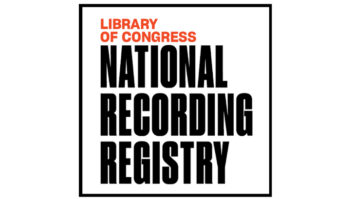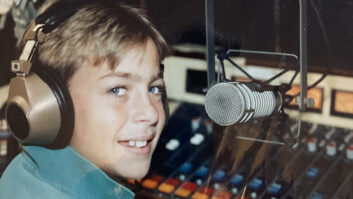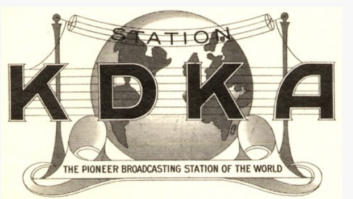The radio broadcast of Wilt Chamberlain’s 100-point basketball game in 1962 will be preserved for all future generations, as will 24 other historical recordings, as the Library of Congress has announced its annual list of recordings that will be added to its National Recording Registry. Recordings are selected that are “culturally, historically, or aesthetically significant” and are at least 10 years old, according to the Library’s National Recording Preservation Board.
This annual exercise was a provision of the National Recording Preservation Act of 2000. With the 2015 additions, a total of 450 recordings are now on the registry.
There was no television broadcast of Chamberlain’s historical game on March 2, 1962, leaving radio as the only means for listeners to experience his 100-point performance against the New York Knicks. The registry is adding fourth quarter coverage of the game that is taken from a pair of recordings from fans.
A pair of episodes from Chicago radio station WMAQ(AM)’s “Destination Freedom” program from 1949 are also being added. This program presented the accomplishments, obstacles and prejudices black Americans experienced in fictionalized stories of figures like Harriet Tubman and Jackie Robinson, performed by black actors. The two episodes added to the registry — “A Garage in Gainesville” and “Execution Awaited”—are indictments on racial prejudice in America at the time.
According to the Library, these recordings will be kept at its Packard Campus for Audio Visual Conservation in Culpeper, Va. The selected recordings were chosen after being nominated through online submission from the public and NPRB. The library is currently accepting nominations for the next registry at the NPRB website.
Here is the full list of recordings added to the 2015 registry (listed in chronological order):
- “Let Me Call You Sweetheart” — Columbia Quartette (The Peerless Quartet) (1911)
- “Wild Cat Blues” — Clarence Williams’ Blue Five (1923)
- “Statesboro Blues” — Blind Willie McTell (1928)
- “Bonaparte’s Retreat” — W.H. Stepp (1937)
- Mahler Symphony No. 9 — Vienna Philharmonic Orchestra; Bruno Walter, conductor. (1938)
- “Carousel of American Music” — George M. Cohan, Irving Berlin, Johnny Mercer, Arthur Freed, Shelton Brooks, Hoagy Carmichael, others (Sept. 24, 1940)
- “Vic and Sade” — Episode: “Decoration Day” (June 4, 1937) Radio
- The “Marshall Plan” Speech — George C. Marshall (June 5, 1947)
- “Destination Freedom” — Episodes: “A Garage in Gainesville” and “Execution Awaited” (Sept. 25, October 2, 1949)
- Original soundtrack from “A Streetcar Named Desire” — Alex North, composer. (1951)
- “Cry Me a River” — Julie London (1955)
- “Mack the Knife” (singles) — Louis Armstrong (1956); Bobby Darin (1959).
- Fourth-quarter radio coverage of Wilt Chamberlain’s 100-point game (Philadelphia Warriors vs. New York Knicks) — Bill Campbell, announcer (March 2, 1962)
- “A Love Supreme” — John Coltrane (1964)
- “It’s My Way” — Buffy Sainte-Marie (1964) (album)
- “Where Did Our Love Go” (single) — The Supremes (1964)
- “People Get Ready” (single) — The Impressions (1965)
- “Mama Tried” (single) — Merle Haggard (1968)
- “Abraxas” — Santana (1970)
- “Class Clown” — George Carlin (1972)
- “Robert and Clara Schumann Complete Piano Trios” — The Beaux Arts Trio (1972)
- “Piano Man” (single) — Billy Joel (1973)
- “Bogalusa Boogie” — Clifton Chenier (1976)
- “I Will Survive” — Gloria Gaynor (1978)
- “Master of Puppets” — Metallica (1986)












